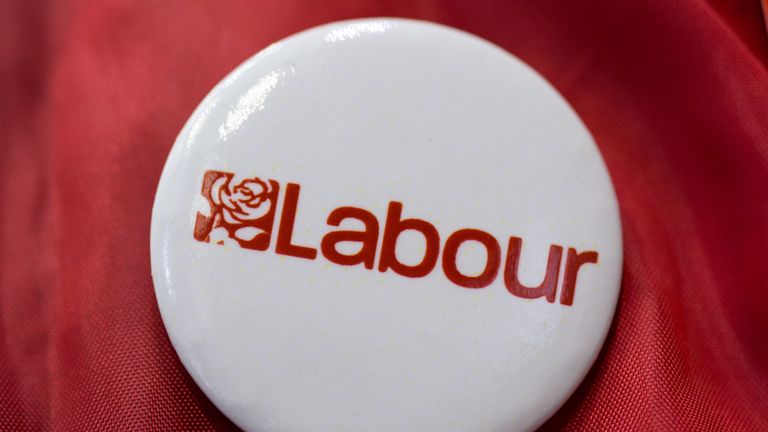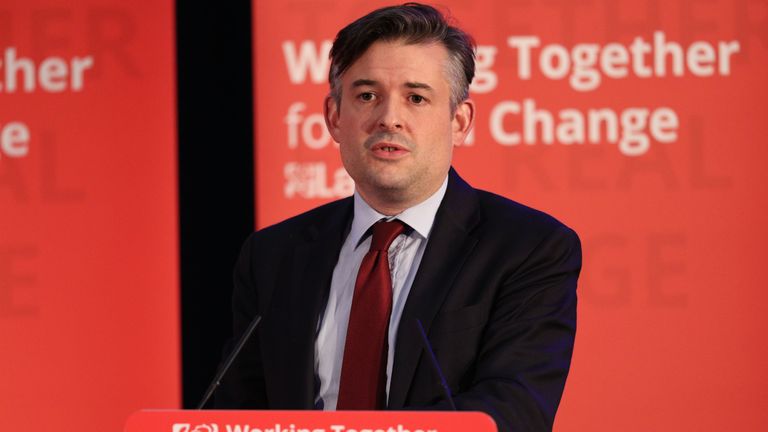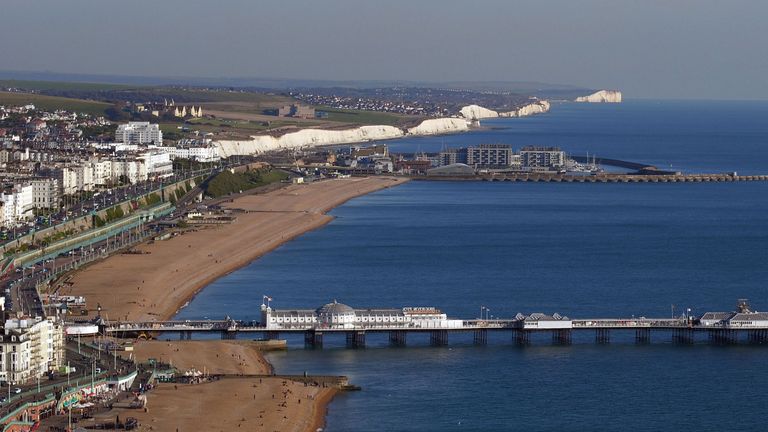Labour refuses to rule out strike support over public sector pay cap
Shadow health secretary Jon Ashworth says his party supports anyone who strikes for industrial reasons ahead of a TUC vote.
Sunday 10 September 2017 16:05, UK
Labour has refused to rule out supporting a coordinated strike over the issue of the 1% public sector pay cap.
Four unions have tabled motions to this week's Trades Union Congress in Brighton calling for some kind of nationally coordinated action.
Asked by Sky whether Labour would support any union-backed action, shadow health secretary Jon Ashworth said his party supports anyone who strikes for "industrial reasons".
He said: "People go on strike for industrial reasons, they don't go on strike for political reasons and ... the Labour Party supports people who take industrial action.
"But we don't want it to get to that stage. We don't want to see a strike. We don't want to see nurses going on strike and wider public servants going on strike.
"The way to avoid that is for the Government to understand the concerns of public sector workers and get rid of this unfair pay cap."
Mr Ashworth said Labour is aiming to force a Commons vote on scrapping the pay cap.
Any vote on the motion would be non-binding on the Government but the Opposition is seeking to capitalise on Conservative support for public sector workers to receive a pay increase and Theresa May's lack of majority to pressure her to take action sooner than previously hinted.
A former top Treasury official has labelled the cap unsustainable in the long-term.
Mr Ashworth called on Tory MPs to join his party in backing moves to end the "unfair" cap on Wednesday, when a motion will be debated.
Mr Ashworth told Sky News's Sunday with Niall Paterson: "What the Government needs to do is understand the concerns of the people who work in our National Health Service and wider public services and get rid of this pay cap.
"We keep getting briefings in newspapers and suggestions that the Government is sympathetic and wants to do something, and 'Oh, it's terrible and we accept that but let's see where we get to'.
"We're bringing a vote to the House of Commons on Wednesday and those Conservative Members of Parliament who have sincerely said they believe the pay cap should go, we're calling on them to vote with us and I'm calling on your viewers to lobby those Conservative Members of Parliament and let me know what they say."
The TUC Congress agenda says delegates will debate a motions from the Public and Commercial Services Union, calling for "a coordinated strategy of opposition... including...industrial action", the Educational Institute of Scotland calling for "coordinated campaigns, including industrial action... to end public sector pay restraint", the Fire Brigades Union calling for "immediate steps to commence a campaign for joint and sustained industrial action" and the Prison Officers Association, which calls for "Congress (to) direct all public sector unions within the TUC to organise and co-ordinate collective action".
TUC General Secretary Frances O'Grady told Sky News: "Five million public servants have put up with seven long years of no real pay rise. We want to see the cap scrapped but we also want no cherry picking.
"The Government has got to start listening. Strikes are always the last resort. But public servants have put up with seven... years of no real pay increase and of course they are angry."
Defence Secretary Sir Michael Fallon said last week that the Government understood that civil servants, teachers, health workers and council staff have taken their "share of the pain" of deficit reduction and indicated the Chancellor was looking at the issue.
The Institute for Fiscal Studies has said if public sector pay were to rise in line with inflation for the next three or four years, the Treasury would have to find between £6bn and £7bn more than if it continued with the cap.





